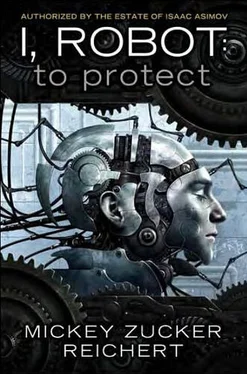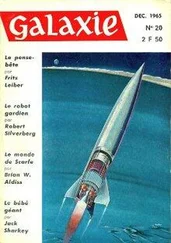Again, the nurse came running over. “What happened?”
The weeping girl attempted to explain, but Susan could not understand a word of what she said. Sharicka poked her head out of the tunnel. “She tripped climbing over me.”
“Whoops.” The nurse swung the sobbing girl into her arms and carried her to the opposite side of the structure. “We can’t have that.” She turned her focus to consoling the girl, who buried her face in the nurse’s chest.
Worried Sharicka would notice her watching, Susan turned her attention fully on her palm-pross for several moments, actually managing to type some documentation before she dared to look for the girl again. This time, she found Sharicka studying the sandbox. A boy sat alone in the middle, meticulously sculpting something Susan could not yet identify.
Relieved of her burden, the nurse took a seat on a bench on the opposite side of the playground. She rubbed her brow, looking harried and tired. The moment the nurse’s bottom touched the seat, Sharicka ran over and hurled herself into the nurse’s lap. Susan could not hear what she said, but the nurse laughed and hugged her tightly. They sat there for several minutes, talking, laughing, and embracing occasionally. Had Susan happened upon the same scene in a park outside of a psychiatric facility, she would have assumed them a loving mother and daughter team.
More telling for Susan, during the time Sharicka sat safely on the nurse’s lap, the remainder of the children played without interruption. No one cried or shouted in pain. Nothing required refereeing. Not that anyone could mistake these for normal, happy children. They tended to play alone rather than in groups. Like toddlers, each engaged in his or her own activity, often despite the potential playmates less than a foot away doing much the same thing. Some chose one repetitive activity, such as the boy who did nothing but ride one slide from the moment he arrived until playtime ended. But all strife disappeared with Sharicka.
The quiet lulled even Susan, who managed to get some actual work done while Sharicka and the nurse interacted. The sounds of swings creaking, of children chasing one another through plastic tunnels, was so peaceful after the crying and screaming that had preceded it. The warm sun and natural light seemed a welcome change from stuffy corridors and low-energy bulbs.
Then, an anguished cry rent the air. Susan’s gaze went instinctively to the nurse’s lap rather than to the sound. Sharicka was no longer there. Susan then looked toward the sobbing child, the same girl Sharicka had kicked in the tunnel. The nurse confronted the child and a boy nearby. Sharicka appeared to have had no hand in the conflict; yet Susan suspected otherwise. It stirred memories of her M-4 psychiatry rotation. A resident she considered a fabulous teacher had once told her, when trying to find the conduct-disordered child in a family, not to ask which one is involved in the most conflicts but instead to ask which child is always on the scene when conflicts occur. A child with a problem on the conduct spectrum, whether simple ADHD or full-blown Conduct Disorder, can cause chaos merely by entering a room.
While the nurse dealt with the current problem, Susan watched as Sharicka took a seat on the excavator. The boy in the middle of the sandbox had, by now, constructed a lavish series of roads, with hills and valleys, populating them with stone “cars” that ran around dry sand hills while he made motor noises. Susan watched, fascinated, as Sharicka’s digging drew closer and closer to the boy’s art. Soon enough, a new conflict would occur, with the boy screeching about his ruined work and Sharicka proclaiming it all a bizarre accident.
The glass door opened, and a unit clerk poked his head through it. “Dr. Calvin!”
Susan looked in his direction.
“There’s a call for you.”
That surprised Susan. Though accustomed to pages, she rarely received direct calls on the unit. If Stony, Clayton, or one of the nurses needed her, they used the Vox system. Only outsiders or consultants used the phone. Consultants. Abruptly, Susan remembered her interaction with Dr. Mandar, and her heart started pounding. Oh, God. I’m fired. She raced to the door.
The nurse stepped aside to let her through, then handed her the cordless.
Susan tried to sound professional. “This is Dr. Susan Calvin.”
She recognized Mandar’s voice at once. “Dr. Calvin, this is Dr. Mandar.”
Susan’s heart felt as if it were trying to slug its way out of her chest. When he did not continue, she took a deep breath and began. “I’m wondering if you remember a patient named Starling Woodruff. She’s a thirteen-year-old white female on whom you performed an A-V fistula repair about two years ago.”
Mandar made a wordless noise that spoke volumes. Apparently, he did not recall Starling’s particulars, but he wanted Susan to continue.
“She’s been on the psych unit ever since because of odd behavior they attributed to brain damage from the surgery.”
Susan could almost feel Mandar’s ire rising. “That’s wrong. I have never damaged a brain with a fistula repair.”
Susan remained composed. Starling’s life depended on it. “I agree, Dr. Mandar. That was why I looked for other causes and discovered congestive heart failure.”
There was silence from the other end. Dr. Sudhish Mandar was listening, raptly, to a psychiatry R-1.
“Which is not responding well to medical management. The source of the failure is clearly still present, but Cardiology can’t find it. The only possible source, Dr. Mandar, is . . .”
“The original fistula,” he filled in for her. “I’ll be down this afternoon.” In an instant, the line went dead.
The moment it did, all the excitement of the moment hit Susan at once. She sank down on the nearest couch, not even noticing she was still in the patient area and that the boy on the next cushion was Diesel Moore. She felt dizzy, faint, and her hand trembled as she clutched the phone in white-knuckled fingers.
Diesel stuck his moon face into hers. “Dr. Calvin? Are you all right?”
“I’m fine,” she assured him, though her voice sounded far away.
Kendall seized Susan’s arm and pulled her to her feet. Looping an arm around her back, he guided her toward the office. “Did I hear you say ‘Dr. Mandar’?”
Susan went with him without bothering to wonder where. He could have guided her to a slaughterhouse, and she would not have noticed. “Yes. Dr. Mandar. He’s coming down to see Starling.”
Kendall’s hand tensed on her arm. He did not speak again until he had taken her into the charting area and sat her down on a chair in front of one of the larger computer screens. “You talked Dr. Sudhish Mandar into coming down to see a patient?”
In an instant, all the residents in the staffing area, Stony, Kendall, Monk, and Nevaeh, were at Susan’s side, all talking at once.
On demand, Susan told them the story of her conversations with the hospital’s greatest neurosurgeon. Monk clamped a hand to his mouth. Stony laughed. Nevaeh merely stared at her through widened eyes. Kendall nodded knowingly and spoke first. “I’d heard the way to gain surgeons’ respect is to stand up to them. I’ve just never had the gall.”
Stony slapped Susan on the back. “Apparently, Susan has enough gall for all of us.”
“A whole bladder full,” Kendall agreed, and the others laughed. “I once watched her decapitate a neurosurgery resident. Should have figured she could handle the most important one in the hospital.”
Susan accepted the gibes good-naturedly, though she felt more nauseated than triumphant. She clutched her left upper abdomen. “At the moment, I think my gallbladder has boulders.”
Читать дальше












